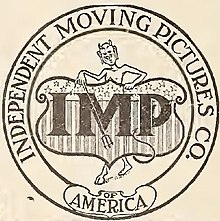
The Motion Picture Patents Company, founded in December 1908 and effectively terminated in 1915 after it lost a federal antitrust suit, was a trust of all the major US film companies and local foreign-branches, the leading film distributor and the biggest supplier of raw film stock, Eastman Kodak. The MPPC ended the domination of foreign films on US screens, standardized the manner in which films were distributed and exhibited within the US, and improved the quality of US motion pictures by internal competition. It also discouraged its members' entry into feature film production, and the use of outside financing, both to its members' eventual detriment.

Universal City Studios LLC, doing business as Universal Pictures, is an American film production and distribution company owned by NBCUniversal, a division of Comcast.

Florence Lawrence was a Canadian-American stage performer and film actress. She is often referred to as the "first movie star", and was long thought to be the first film actor to be named publicly until evidence published in 2019 indicated that the first named film star was French actor Max Linder. At the height of her fame in the 1910s, she was known as the "Biograph Girl" for work as one of the leading ladies in silent films from the Biograph Company. She appeared in almost 300 films for various motion picture companies throughout her career.

Carl Laemmle was a German-American film producer and the co-founder and, until 1934, owner of Universal Pictures. He produced or worked on over 400 films.

Universal City or Universal Studios Complex is an unincorporated area within the San Fernando Valley region of Los Angeles County, California, United States. Approximately 415 acres, within and immediately outside the area is the property of Universal Pictures, one of the five major film studios in the United States: about 70 percent of the studio's property is inside this unincorporated area, while the remaining 30 percent is within the Los Angeles city limits. Universal City is nearly surrounded by Los Angeles, with the area's northeastern corner touching the city of Burbank.

The Nestor Film Company, originally known as the Nestor Motion Picture Company, was an American motion picture production company. It was founded in 1909 as the West Coast production unit of the Centaur Film Company located in Bayonne, New Jersey. While not the first movie studio in Los Angeles, on October 27, 1911, Nestor established the first permanent motion picture studio in Hollywood, California, and produced the first Hollywood films. The company merged with its distributor, the Universal Film Manufacturing Company, on May 20, 1912. Nestor became a brand name Universal used until at least mid-1917.

David Horsley was an English pioneer of the film industry. He founded the Centaur Film Company and its West Coast branch, the Nestor Film Company, which established the first film studio in Hollywood in 1911.
The Victor Film Company was a motion picture company formed in 1912 by movie star Florence Lawrence and her husband, Harry Solter. The company established Victor Studios in Fort Lee, New Jersey, when early film studios in America's first motion picture industry were based there at the beginning of the 20th century.

Patrick Anthony Powers was an American producer who was involved in the movie and animation industry of the 1910s, 1920s, and 1930s as a distributor and producer. His firm, Celebrity Productions, was the first distributor of Walt Disney's Mickey Mouse cartoons (1928–1929). After one year, Disney split with Powers, who started another animation studio with Disney's lead animator, Ub Iwerks.
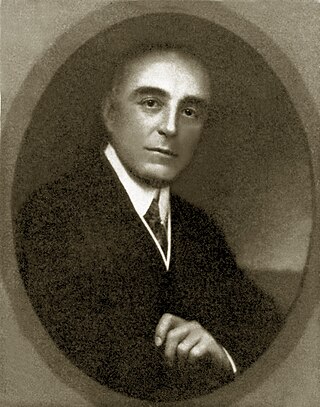
Pierre Ernest Jules Brulatour was a pioneering executive figure in American silent cinema. Beginning as American distribution representative for Lumiere Brothers raw film stock in 1907, he joined producer Carl Laemmle in forming the Motion Picture Distributing and Sales Company in 1909, effectively weakening the stronghold of the Motion Picture Patents Company, headed by Thomas Edison, a large trust company that was then monopolizing the American film industry through contracts with hand-picked, established studios. By 1911 Brulatour was president of the Sales Company. He was a founder of the Universal Film Manufacturing Company, later known as Universal Pictures.
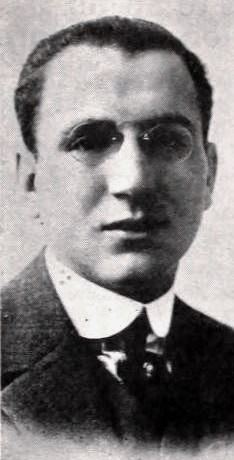
Julius Stern was an American film producer. He produced 541 films between 1917 and 1929. He was a co-founder of Universal Studios. He was born in Hintersteinau, Germany, and died in New York City, New York. He was the brother of producer Abe Stern and the brother-in-law of Universal Studios co-founder Carl Laemmle.

The General Film Company was a motion picture distribution company in the United States. Between 1909 and 1920, the company distributed almost 12,000 silent era motion pictures. It was created as part of the Edison Trust to monopolize film distribution.
The Centaur Film Company was an American motion picture production company founded in 1907 in Bayonne, New Jersey, by William and David Horsley. It was the first independent motion picture production company in the United States. In 1909 the company added a West Coast production unit, the Nestor Film Company, which established the first permanent film studio in Hollywood, California, in 1911. The company was absorbed by the Universal Film Manufacturing Company in 1912.

Providencia Ranch, part of Providencia Land and Water Development Company property named for the Rancho Providencia Mexican land grant, was a property in California, US. It was used as a filming location for the American Civil War battle scenes in The Birth of a Nation (1915) and other silent motion pictures. The valley was also the site for two Universal Studios west coast operations in 1914.

Joe Brandt was an American publicist, screenwriter, editor, film producer, and general manager. He co-founded Columbia Pictures with Harry and Jack Cohn.

Hiawatha is a 1913 American silent drama film directed by Edgar Lewis and based upon Henry Wadsworth Longfellow's epic poem The Song of Hiawatha (1855). The film stars Jesse Cornplanter of the Seneca people and Soon-goot, a 17-year-old unknown actress. The movie is the first feature film to use a cast of Native Americans.

United States v. Motion Picture Patents Co., 225 F. 800, was a civil antitrust prosecution overlapping to some extent with the issues in the decision in the Supreme Court's Motion Picture Patents case. After the trial court found that the defendants violated §§ 1 and 2 of the Sherman Act by establishing control over "trade in films, cameras, projecting machines, and other accessories of the motion picture business," by their patent licensing practices and other conduct, they appealed to the Supreme Court. After the Supreme Court's 1917 decision in Motion Picture Patents Co. v. Universal Film Manufacturing Co., however, the parties dismissed the appeal by stipulation in 1918 that the decision had made the defendants' appeal futile.

The Champion Film Company was an independent production company founded in 1909 by Mark M. Dintenfass. The studio was one of the film companies that merged to form Universal Pictures.
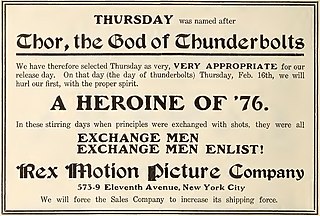
Rex Motion Picture Company was an early film production company in the United States.
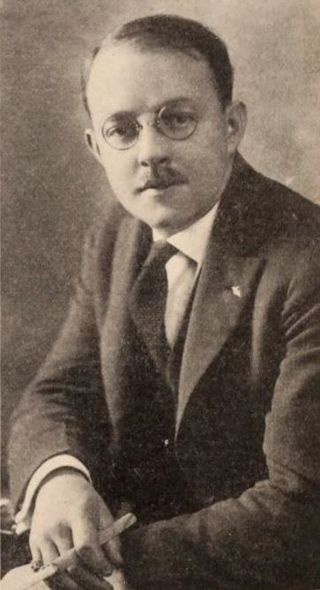
Jacob Cohn was a co-founder of Columbia Pictures Corporation.
